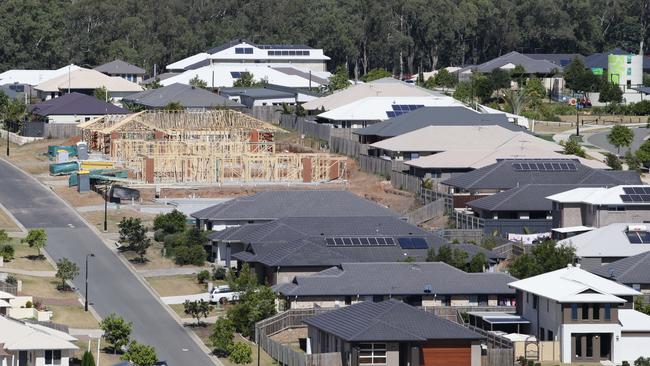Think tank proposes new levy on property ownership to boost state government coffers
THERE is a call today to eradicate a tax that hits first home buyers hard, and instead pass the costs onto all property owners.

ALL property owners should be hit with an regular levy to help state governments boost their coffers and eliminate “inequitable” stamp duty, an influential think tank has proposed.
The Grattan Institute has released a paper that suggests the levy would raise $7 billion a year and would be the best way for state and territory governments to quickly raise more money.
Grattan Institute chief executive officer John Daley said while many may complain that property was already overtaxed, the reality was Australians paid less in the way of property taxes than other countries including Canada, the United States and even New Zealand.
Based on the calculation of a $2 levy for every $100,000 of unimproved land value, Mr Daley said that would equate to about $772 a year for an owner of a median-priced Sydney home.

“There is no fair amount of tax for property owners to pay, it is the precise reason why we should be charging more in the way of property taxes and less in the way of income taxes, payroll taxes and so on,’’ Mr Daley said.
He said a levy on property ownership would have less of an economic impact than other taxes.
“You can’t move property anywhere else,’’ he said.
“Therefore if you don’t want to pay the tax, well, sell the property to someone else who will and there will always be a buyer.
“That is one of the advantages of these kinds of property levies. They are very cheap to collect and they are very difficult to avoid. Rich people pay them because you can’t hide it in a Swiss bank account. If you’ve got a piece of property someone will be calling to collect the tax.’’
Mr Daley said states and territories had looming funding gaps and a “broadbased’’ property levy calculated from the council rates base would be the best revenue measure to fill that gap.
“While property taxes can be unpopular because they are highly visible and hard to avoid, they are also efficient and fair, and don’t change incentives to work, save and invest.”
He said the proposal protected low-income people such as retirees with high-value houses because they could defer paying the levy until the house was sold.
It could also help fill a gap which would be left with the potential reduction and eventual abolition of stamp duties which was an “inefficient and inequitable state tax”.
“Over the longer term it would be a very good idea to see these things expand and stamp duties fall,’’ he said.
“The way that you would implement it is that if you were using it to reduce stamp duty you would increase property levies gradually, you would reduce stamp duties gradually, and so essentially people wind up paying more of one less of another over time.’’



